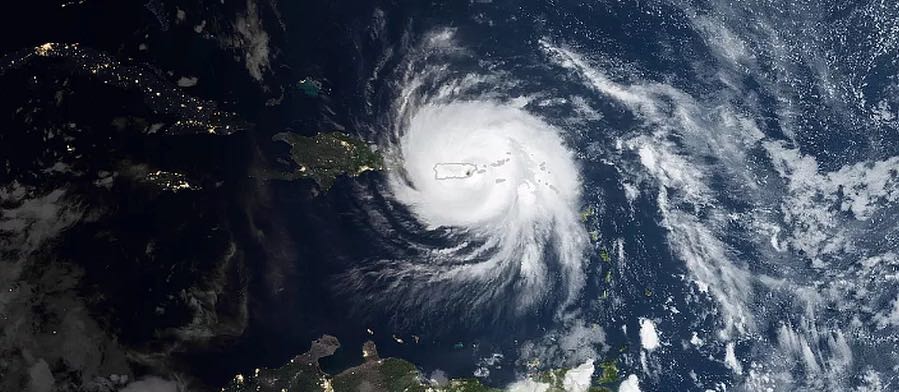(Source: US News)
SAN JUAN, Puerto Rico (Reuters) – News anchorman Luis Penchi has slept about three hours a night since Hurricane Maria turned his radio station into one of the few sources of public information on this battered island.
Working more than 25 hours straight during the height of the devastating storm, the lay Franciscan friar and grandfather has emerged as a light in the darkness for Puerto Rican listeners trapped in a virtual telecommunications blackout.
The powerful storm knocked out electricity, internet, television and cell service for the U.S. territory’s 3.4 million people. When other radio stations went dark, WAPA 680 kept plugging, delivering a 24-hour stream of news, advice, messages and pleas for assistance from listeners desperate to connect with loved ones.
Barefoot and wearing shorts and a wooden crucifix at the San Juan station on Wednesday, the bright-eyed Penchi credited retro technology for helping WAPA power through the maelstrom, along with some divine intervention.
“I believe it was an act of God. This is the chosen station,” the 62-year-old said with laugh.
In the days and hours since the storm broke, the Spanish-language station has become a cornerstone of news, sending out bulletins across the devastated U.S. territory about relief efforts, road conditions and missing people. In the words of one of its owners, Carmen Blanco, WAPA turned into the unofficial “voice of the government” about the hurricane.
[…]Inside are echoes of an earlier age that for now is the norm in Puerto Rico. With power limited to the station’s generator, there is no air conditioning. Electronic frills have been reduced to the minimum. At the reception area, a woman wrote messages for broadcast on a typewriter.
Anchor Penchi credits such old-school resourcefulness for the station’s durability. He said WAPA stayed on the air because it had maintained its old analogue broadcasting capacity alongside its digital equipment.
Payam Heydari, an expert in radio technology at the University of California, Irvine, said basic analogue equipment tends to provide robust transmission over long distances. In comparison, he said, digital technology is highly dependent on electricity to power the relays needed to carry a signal.
“Therefore as soon as power goes down, so do the relays” on a digital signal, Heydari said.[…]
Continue reading this full article at US News and World Report…


That makes more sense. As I interpreted it, it sounded like they claimed a digitally-controlled transmitter would fail to reach as far as an analog one, regardless of the signal type. My physics says that makes no sense, but I’m less a physicist than a computer programmer, so I assumed I understood it incorrectly. Thanks for making that logical again.
Would it be logical, if digital transmitting systems are so problematic, to keep analog transmitters around just for emergency use. Also, I’m having trouble understanding why a digital transmitting system would be in use if it is less reliable and requires separate relays, assuming I’m understanding that part correctly. Wouldn’t the process of finding locations for each extra relay put a lot of pressure on radio stations, whereas an analog transmitter could just be put up somewhere optimal? I hope someone can clarify this for me.
I don’t think the people in the article understand the technology they’re talking about. Penchi is probably referring to stuff like the typewriters and notepads in place of PCs and intranet messaging over a LAN. I don’t think WAPA has an HD signal or anything else weird. Heydari has to be referring to cellular telephone networks, as that’s the only “links that need power” I can think of. A digital radio or TV signal will go just as far as the analog will if it’s engineered to.